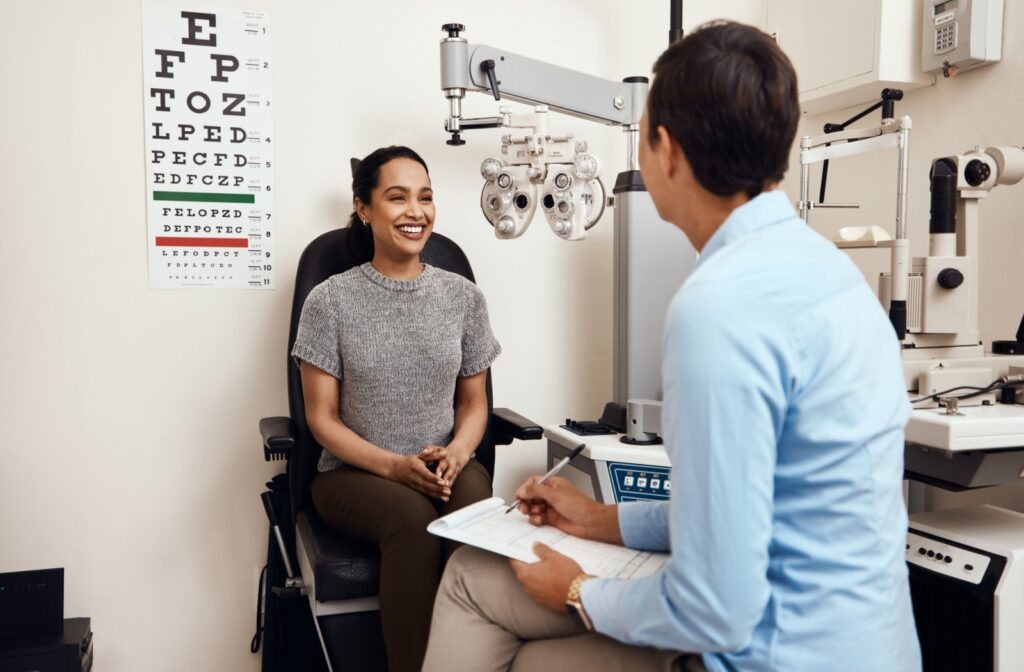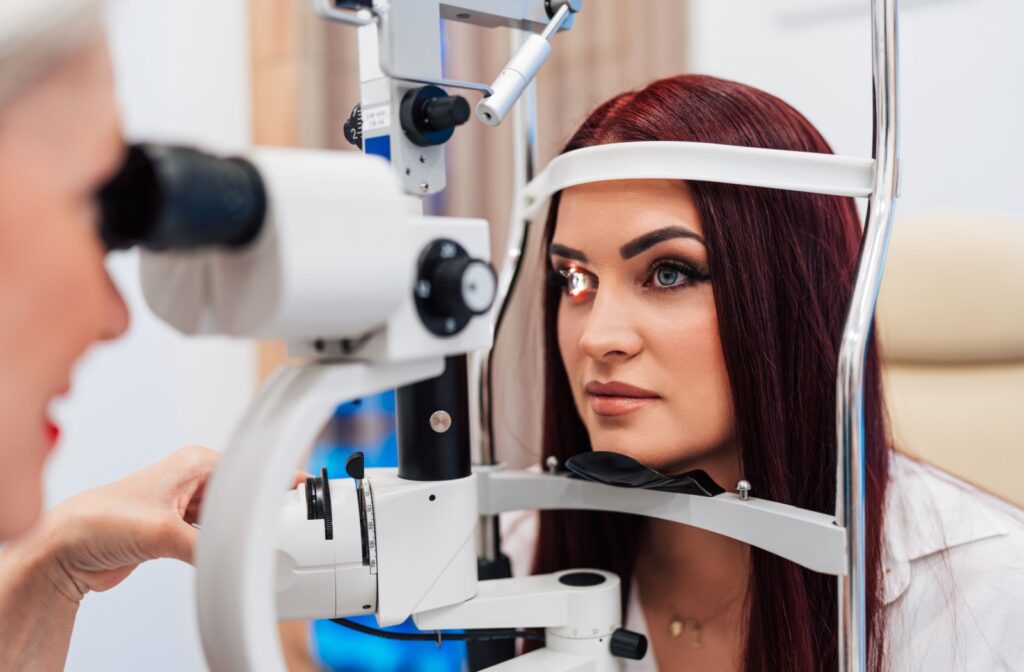An eye exam is a comprehensive examination of the eye and its structures, which can help identify various diseases and conditions that may affect your vision. This routine check-up is not only essential for maintaining good vision but also plays a crucial role in detecting potential health issues. Some of the diseases that can be detected in an eye exam may include:
- Refractive errors
- Cataracts
- Glaucoma
- Diabetic retinopathy
- Macular degeneration
Refractive Errors
Refractive errors refer to the common vision problems that occur when the shape of your eye prevents light from focusing correctly on the retina. This leads to blurred vision and difficulty seeing objects clearly at various distances. An eye exam can detect refractive errors such as myopia (nearsightedness), hyperopia (farsightedness), and astigmatism, which can be corrected with eyeglasses, contact lenses, or laser surgery.
Cataracts
Cataracts are a common age-related condition in which the lens of your eye becomes cloudy, causing blurred or clouded vision. An eye exam can detect the presence of cataracts and monitor their progression, allowing for timely treatment with surgery if necessary.
Glaucoma
Glaucoma is a group of eye diseases that can damage the optic nerve and lead to vision loss if left untreated. An eye exam can measure the pressure in your eye (intraocular pressure) and evaluate the health of your optic nerve, helping to identify early signs of glaucoma.
Diabetic Retinopathy
Diabetic retinopathy is a complication of diabetes that affects the blood vessels in the retina. During an eye exam, your optometrist may look for changes in the blood vessels, abnormal growth of new blood vessels, or swelling of the macula (the central part of the retina). Early detection and management of diabetic retinopathy can help prevent vision loss.
Macular Degeneration
Macular degeneration is an age-related eye disease that causes damage to the macula, leading to blurry or distorted vision. An eye exam can detect early signs of macular degeneration and monitor its progression, allowing for timely treatment options such as injections or laser therapy.

What to Expect During an Eye Exam
During an eye exam, your optometrist will perform several tests to assess the health and function of your eyes. These may include:
- Visual acuity test: Measures how well you can see at various distances.
- Refraction test: Determines if you have a refractive error and the appropriate prescription for corrective lenses.
- Eye movement test: Evaluates how well your eyes work together and track objects.
- Slit lamp exam: Uses a special microscope to examine the front structures of your eye, including the cornea, iris, and lens.
- Retinal exam: Allows your optometrist to view the back of your eye using special instruments and lights.
- Glaucoma test: Measures the pressure inside your eye and evaluates the health of your optic nerve.
How Often Should You Have an Eye Exam?
The frequency of eye exams varies depending on your age, overall health, and any existing vision problems. As a general guideline, the American Optometric Association recommends regular eye exams annually for adults aged 18 to 60 with no risk factors or vision problems.
Children should have their first comprehensive eye exam beginning at 6 months of age, followed by an exam at age 3, before entering first grade, and then periodically at 2-year intervals. Adults over 65 years old should have a complete eye exam with an ophthalmologist every year or two.
If you have certain medical conditions such as diabetes or high blood pressure, or if you wear glasses or contact lenses, your optometrist may recommend more frequent eye exams to monitor and manage any changes in your vision.
Preparing for Your Eye Exam
To ensure the most accurate results during your eye exam, it’s important to prepare beforehand. This includes bringing a list of any current medications or supplements you are taking, as some can affect your eyesight.
If you wear contact lenses, be sure to bring them with you and let your optometrist know how often you wear them. It’s also helpful to have a list of any symptoms or concerns you may have about your vision.
Disclaimer
It is important to note that an eye exam does not only assess your visual acuity but also evaluates the health of your eyes. Therefore, even if you have no vision problems, it is still recommended to have regular eye exams to detect any potential underlying issues that may not be noticeable on the surface.
In addition, an eye exam can also catch early signs of serious health conditions such as diabetes and high blood pressure. This is because changes in the blood vessels in the eye can indicate changes in other parts of the body.
Experience Comprehensive Eye Care at Total Vision Fountain Valley
Regular eye exams are an essential part of maintaining good eye health and catching potential problems early on. They help in diagnosing issues like glaucoma, cataracts, and other eye conditions before they become serious. By understanding what to expect during an eye exam—such as visual acuity tests, eye pressure checks, and evaluations of eye alignment—and the importance of regular exams, we can all work towards better vision and overall health.
At Dr. Goldstone Vision Center in Fountain Valley, our experienced optometrists are dedicated to providing comprehensive eye exams and top-notch care for all of our patients. We believe that maintaining eye health is an ongoing process and are committed to being your trusted partner in vision care. Schedule your next eye exam with us today for healthy and clear vision, and take a proactive step towards safeguarding your eyesight for the future.



